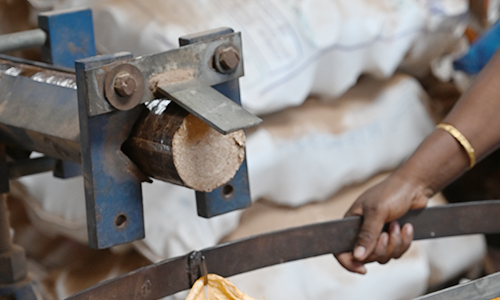
As industries worldwide seek sustainable and cost-effective energy solutions, biomass briquettes have emerged as a powerful alternative to traditional fossil fuels. Made from agricultural and forestry waste, these eco-friendly fuel sources are not only affordable but also environmentally responsible. Here’s why biomass briquettes are becoming the go-to green fuel for industries.
1. Environmentally Friendly Fuel
Biomass briquettes are carbon-neutral. Unlike coal or diesel, which release large volumes of CO₂, these briquettes emit far less greenhouse gases. The carbon released during burning is balanced by the CO₂ absorbed by plants during growth.
2. Cost-Effective for Industries
Compared to fossil fuels, biomass briquettes are significantly cheaper, often reducing fuel costs by up to 40%. They are also supported by green policies and incentives in many countries.
3. Renewable & Abundantly Available
Agricultural economies generate millions of tons of waste annually. Transforming this into briquettes promotes waste recycling and creates a sustainable fuel supply.
4. Clean Burning and Less Ash
Biomass briquettes produce less than 10% ash compared to coal’s 30–40%, resulting in cleaner combustion and easier maintenance of industrial boilers and furnaces.
Comparison: Biomass vs Traditional Fuels
| Feature | Biomass Briquettes | Coal | Diesel | LPG |
|---|---|---|---|---|
| Carbon Emission | Low | High | Very High | Moderate |
| Cost | Low | Medium | High | High |
| Ash Content | <10% | Up to 40% | NA | NA |
| Renewable | Yes | No | No | No |
| Availability | High | Moderate | High | High |
| Storage & Handling | Easy | Dusty | Risky | Risky |
Conclusion
Biomass briquettes offer a cleaner, cheaper, and more sustainable alternative to fossil fuels. With governments pushing for green energy and industries seeking efficient solutions, switching to biomass fuel is a smart step toward a greener future.

